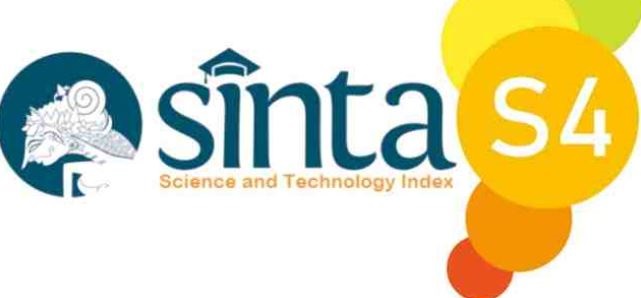PERAN BERFIKIR POSITIF DAN DUKUNGAN SOSIAL TERHADAP POST TRAUMATIC STRESS DISORDER (ptsd) PADA PENYINTAS GEMPA BUMI
 ),
), (1) Magister Psikolog Sains, Fakultas Psikologi Universitas Ahmad Dahlan
 Corresponding Author
Corresponding Author
Copyright (c) 2021 sari lailatul qodrati
DOI : https://doi.org/10.24036/rapun.v12i2.112006
Full Text:
 Language : english
Language : english
Abstract
This study aims to determine the role of positive thinking, social support for post traumatic stress disorder (ptsd) in high school students who are earthquake survivors in Lombok. This research is a quantitative research with the sampling technique using cluster random sampling. The research subjects were students of class XI at three SMANs in East Lombok district with a total of 103 students. Data collection in this study used a scale of post traumatic stress disorder, a scale of positive thinking and a scale of social support. Hypothesis testing is done using regression analysis techniques. The results of this study indicate that there is a very significant role between positive thinking, social support for post traumatic stress disorder, indicated by the correlation number F = 26.093 with p = 0.000 (p <0.01). post traumatic stress disorder is indicated by the number t = -4,104 with p = 0,000 (p <0.01). There is a very significant role between social support for post traumatic stress disorder as indicated by the number t = -3.223 with p = 0.002 (p <0.01).
Keywords
References
Albrecht. Karll.(1980). Brain power learn to improve you thinking skill. New jersey. Prentice-hall.inc
Andrews, B., Brewin, C. R., & Rose, S. (2003). Gender, social support, and PTSD in victims of violent crime. Journal of Traumatic Stress, 16 (4), 421-427.
American Psychiatric Association. (2013). Diagnostic and statistical manual of mental disorder edition “DSM-5”. Washinton DC: American Psychiatric Publishing.
Azwar, S. (2014). Metode penelitian kuantitatif & kualitatif. Yogyakarta: Pustaka Pelajar.
Azwar, S. (2014). Penyusunan skala psikologi edisi II. Yogyakarta: Pustaka Pelajar.
Dwitantyanov, A., Hidayati, F., & Sawitri, D. R. (2010). Pengaruh pelatihan berpikir positif pada efikasi diri akademik mahasiswa (studi eksperimen pada mahasiswa fakultas psikologi undip semarang. Jurnal Psikologi Undip, 8 (2), 135-144.
Davidson, G. C., Neale, J. M., & Kring, A. M. (2006). Psikologi abnormal: Edisi ke-9. Jakarta: PT Raja Grafindo Persada.
Irma, R. A. (2018). Hubungan berpikir positif dengan kebahagiaan penderita kanker payudara. Doctoral dissertation, Universitas Islam Negeri Sultan Syarif Kasim Riau.
Kadri, N., Berrada, S., Douab, S., Tazi, I., & Moussaoui, D. (2006). Syndrome de stress post-traumatique chez les survivants du séisme d’Agadir (Maroc) de 1960. L’Encéphale, 32(2), 215–221. doi:10.1016/s0013-7006(06)76147-4
Kholidah, E. N., & Alsa, A. (2012). Berpikir positif untuk menurunkan stres psikologis. Jurnal psikologi, 39 (1), 67-75.
Lawrence, J. W., & Fauerbach, J. A. (2003). Personality, coping, chronic stress, social support and PTSD symptoms among adult burn survivors: a path analysis. The Journal of Burn Care & Rehabilitation, 24 (1), 63-72.
Manguno-Mire & Franklin, C. L. (2009). Post-traumatic stress disorder. In Roland A. Carlstedt (Eds.): Handbook of integrative clinical psychology, psychiatry, and behavioral medicine: Perspective, practices, and research. New York: Springer.
Nevid, S.A., Jeffry, S., Rathus, B.G. (2005). Psikologi abnormal. Jakarta: Erlangga
Peale, N. V. (2006). Berpikir positif untuk remaja. Yogyakarta: Baca.
Rahayu, R. I., Haryanti, F., Kp, S., Hartini, S., & Kep, S. (2018). Hubungan karakteristik responden dan dukungan sosial dengan post traumatic stress disorder (PTSD) pada remaja 7 tahun pasca erupsi gunung merapi. Doctoral dissertation, Universitas Gadjah Mada.
Ray & Vanstone. (2009). The impact of PTSD on veterans’ family relationships: An interpretative phenomenological inquiry. International Journal of Nursing Studies, 46, 838–847
Sarafino, E. P., & Smith, T. W. (2014). Health psychology: Biopsychosocial interactions. John Wiley & Sons.
Sugiyono. (2010). Statistika untuk penelitian. Bandung: Alfabeta
Taylor, S. E., Peplau, L. A., & Sears, D. O. (2009). Psikologi sosial. Jakarta: Kencana Prenada Media Group.
Tentama, F. (2014). Dukungan sosial dan post-traumatic stress disorder pada remaja penyintas gunung merapi. Jurnal Psikologi Undip, 13 (2), 133-138.
Urbayatun, S. (2008). Studi meta-analisis hubungan antara social support dengan PTSD (post traumatic stress disorder). Psikologika: Jurnal Pemikiran dan Penelitian Psikologi, 13 (25), 85-101.
TV ONE (2018, Agustus 18) Data kerusakan fisik akibat gempa bumi di lombok [video file]. https://www.youtube.com/watch?v=9owszZqE3qs
 Article Metrics
Article Metrics
 Abstract Views : 697 times
Abstract Views : 697 times
 PDF Downloaded : 222 times
PDF Downloaded : 222 times
Refbacks
- There are currently no refbacks.
Copyright (c) 2021 sari lailatul qodrati

This work is licensed under a Creative Commons Attribution-NonCommercial 4.0 International License.






